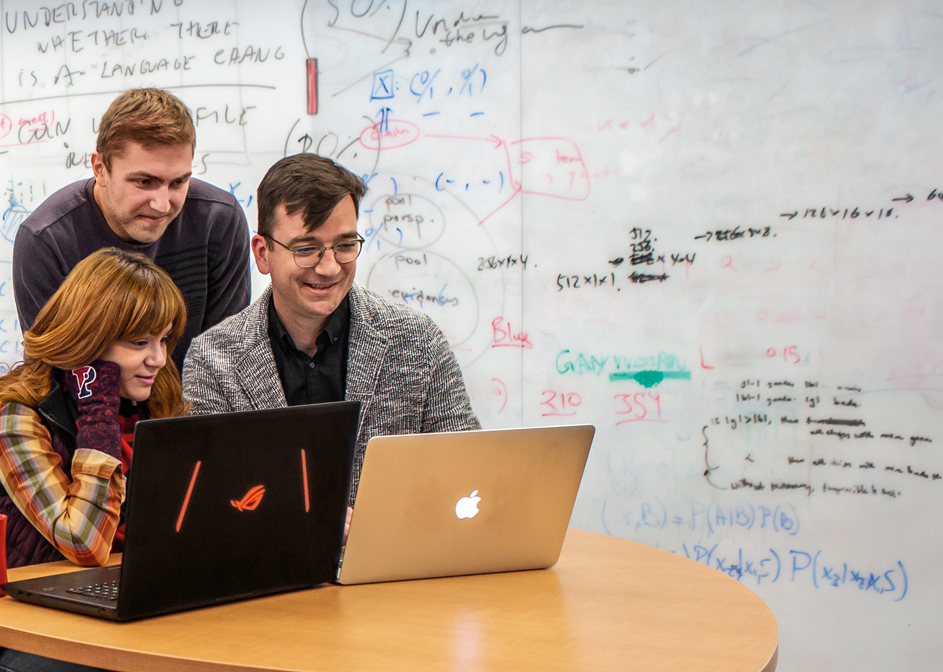
Why Penn CIS?
Why Study Computer and Information Science at Penn?
The infrastructure of business, government, science and even everyday social interaction is today dependent upon computers and digital communication. Every time we download music, use GPS navigation, purchase an item, post an update on social media, drive a car, trade stocks, perform or undergo a medical procedure, or play a video game, we rely upon networks of computers that store, exchange and process information in ever more elaborate and innovative ways.
With the pace of innovation and technological advancement accelerating ever faster, engineers hold the keys to the next generation’s routine wonders. The Department of Computer and Information Science (CIS) at Penn Engineering is uniquely positioned to propel those future intellectual leaders, entrepreneurs, thinkers and innovators to success. As an Ivy League institution, and the first university in the nation, The University of Pennsylvania ensures its students a transformative experience.
Computer science at Penn comes in a variety of forms to meet your specific interests. Whether you are looking for an in-depth education in the conceptual foundations of computer science and in complex software and hardware systems, an informed understanding of the aesthetic aspects of digital media design, expertise in the design and analysis of the complex networks that are reshaping our society, or to further explore artificial intelligence, computer vision, control systems, dynamics, machine learning or the programming and prototyping of robotic systems, CIS has the leading edge undergraduate and graduate programs that will produce tomorrow’s innovators, leaders, and visionaries.
Research opportunities span a wide range of theoretical and application topics including robotics, vision, natural language processing, databases, formal methods, real-time systems, computer architecture, machine learning, programming languages, graphics, network security, software engineering, bioinformatics, as well as interdisciplinary collaborations with fields such as biology, genetics, linguistics, mathematics, and electrical engineering.
Our research centers and institutes offer myriad possibilities for exploration. Students have access to Penn’s Center for Human Modeling and Simulation, internationally recognized for cutting-edge research in 3D computer graphics, human simulation and the behavioral animation of embodied intelligent agents. Penn’s General Robotics, Automation, Sensing and Perception (GRASP) Laboratory, internationally recognized as one of the nation’s premier research centers, affords student the opportunity to obtain hands-on experience in robotics and related areas of research.
Presentations by outstanding leaders in their fields at our departmental events provide rigor, breadth, and relevance to the research and education experience. The University of Pennsylvania’s twelve Schools together on a single campus create an academic environment whose synergy informs research and education in the Department.
The Department of Computer and Information Science is an exciting place to be – we invite you to join us.
